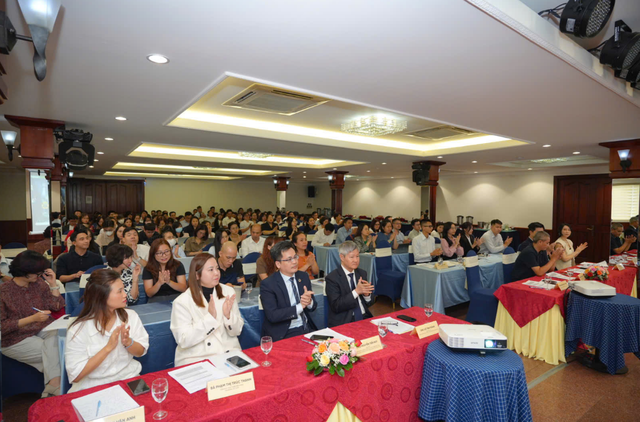
Vietnamese firms voice concerns over Extended Producer Responsibility compliance
Many Vietnamese enterprises have raised concerns over the implementation of the Extended Producer Responsibility (EPR) policy, citing high costs, lack of infrastructure, and insufficient support mechanisms.
Some companies have even set aside funds in anticipation of possible fines for non-compliance, heard at a workshop organized by the Vietnam Business Council for Sustainable Development in collaboration with the Ministry of Agriculture and Environment in Ho Chi Minh City on Thursday.
The event focused on regulations concerning EPR, especially obligations around the collection and recycling of products and packaging.
While many participants expressed support for the environmental goals of EPR, they were candid about the difficulties they face in putting the policy into practice.
Pham Truc Thanh, director of sustainable development at Heineken Vietnam, pointed to the lack of modern recycling technology and infrastructure as key barriers to transitioning to a circular economy.
Le Anh, sustainable development director at Duy Tan Plastic Recycling Corporation, noted that while the company’s recycling plant, capable of processing 60,000 metric tons annually, is considered one of the most advanced in Vietnam, poor waste separation systems have led to inefficiencies and rising costs.
In the petroleum sector, Nguyen Thi Hanh, a representative from TotalEnergies, shared that the firm has been proactive in collecting and recycling used lubricants in Vietnam, making it among the first foreign-invested enterprises to do so.
Despite the risk of penalties for falling short of recycling targets, Hanh revealed that TotalEnergies has allocated VND2 billion (US$76,500) to cover potential fines, reflecting the firm’s commitment to recycling and environmental responsibility.
She said that recent proposals to expand the list of products subject to mandatory recycling could significantly increase the burden on producers.
Currently, only 15 percent of engine oil is covered under EPR requirements, but a proposed change would extend the rule to all lubricants.
Citing data from XP Global, Hanh noted that Vietnam’s total lubricant consumption in 2024 was estimated at 467,000 metric tons, with engine oil accounting for 349,000 metric tons.
As per the prevailing regulations, some 52,000 metric tons must be recycled.
If applied to all lubricants, this figure would rise to over 70,000 metric tons, a jump of about 33 percent.
Besides, she highlighted that the domestic market lacks clear categorization for waste oils, complicating the processes of declaration and treatment.
Although TotalEnergies is partnering with a local recycler, proving the origin of waste oil remains difficult due to fragmented procedures and the absence of guidelines.

Some 200 corporate representative attend a workshop on EPR in Ho Chi Minh City, June 19, 2025. Photo: Nhat Xuan / Tuoi Tre
Call for policy adjustments, support mechanisms
Many firms at the workshop called for practical support measures if recycling obligations are to be expanded, especially concerning lubricant products.
In response, a representative from the Ministry of Agriculture and Environment said that the ministry would review EPR provisions and fine structures in order not to pile pressure on businesses, and to encourage firms to actively participate in recycling.
The official also emphasized that the ministry wishes to promote voluntary corporate responsibility for environmental impacts, rather than allow companies to fulfill obligations through payments.
Accordingly, specific support in terms of technical guidance, infrastructure, administrative procedures, and phased implementation will be considered to improve feasibility.
“We will collect all opinions from this workshop to work with the ministry to finalize a draft decree on EPR guidance,” said Nguyen Tien Huy, head of the Office for Business Sustainable Development.
Tieu Bac - Nhat Xuan / Tuoi Tre News
Link nội dung: https://news.tuoitre.vn/vietnamese-firms-voice-concerns-over-extended-producer-responsibility-compliance-10325062013283478.htm